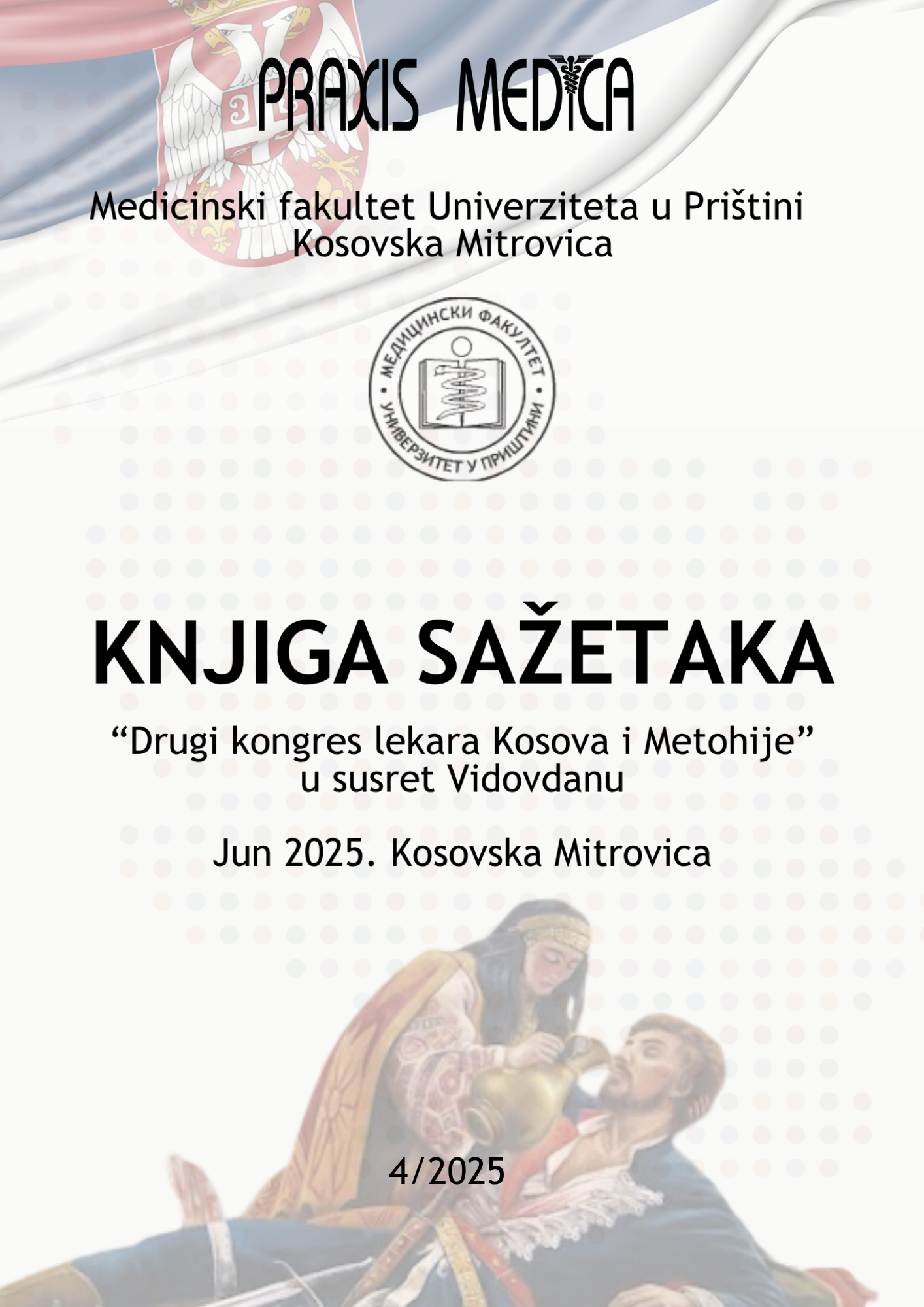Current issue

Volume 53, Issue 4, 2025
Online ISSN: 2560-3310
ISSN: 0350-8773
Volume 53 , Issue 4, (2025)
Published: 30.06.2025.
Open Access
All issues
Contents
01.06.2016.
Professional paper
Elements of mental hygiene and diet as factor of control chronical renal disease
Chronic kidney disease (CKD) is a syndrome which is caused by gradual progressive and irreversible reduction of kidney function. CKD has become a global health care problem. From a mental hygiene point of view, the aim of this study is to present the most important stressors in patients with CKD. Knowledge and recognition of everything that influences the increase of stress in people with CKD, on one hand leads to an improvement of understanding , and on the other gives us possibilities to prevent or at least reduce the negative effects of stress. Furthermore, patients with CKD often have anxiety and depressive symptoms which overlap with the clinical symptomatology of kidney disease, which is mostly caused by uremia. We have given certain suggestions for early depression screening in patients with CKD by analyzing previously conducted research. As far as diet is concerned, research suggests that patients with CKD should be prescribed a low protein diet which delays the progression of CKD, reduces the metabolical disbalance and delays the need for dialysis. A traditional diet focused on protein intake without a special selection of meals is recommended. Other recommendations are vegan diet as well as vegan diet with suplements. Furthermore, a diet without proteins with pastas without proteins, bread and other carbohydrates. There are also recommendations for a low protein diet with suplements with an intake of only 0.3 g/kg BM/protein a day with an addition of proteins from vegetables, amino and keto acids. Finally, it should be mentioned that comorbidities should be taken into consideration when prescribing a diet for patients with CKD. It is necessary for the patient to be compliant with the recommended diet.
Jelena Jovic, Marinela Knezevic, Danijela Ilic, Miodrag Ristic, Marija Krstic-Ristic, Dragana Ignjatovic-Ristic
01.01.2016.
Professional paper
The concentration of soot as a factor of change in the air quality
Introduction: Soot usually occurs as a result of incomplete combustion of fuels containing carbon (fossil fuels - wood, coal). Air pollution is one of the most serious environmental threats to the urban population, which has harmful effects on human health, regardless of age. Objective to determine the extent to which the development of concentrations of soot in the air affects the air quality in the area tested. Methods: In the period from 2007. to 2011. the soot immission was followed at two sites: in Kosovska Mitrovica and Zvecan. The concentration of soot is determined by the reflectometric method. The statistical hypotheses were tested on statistical significance level of 0.05. Results: Overall, for both measuring points, there was a statistically significant change in value of the concentration of soot in the air (F = 6.779; p = 0.009). There was a significant increase in the concentration of soot in the air during the investigated years, with the highest values in 2010. and 2011. The average value of soot concentration for the period from 2007 to 2009 was 17.7 ± 21.3 mg / m while in the period from 2010. to 2011. it was 36.7 ± 45.2 µg/m , which represents a statistically significant difference (U = 910082.5; p<0.001). The amount of average concentrations of soot in the heating 3 3 season was 32.8 ± 44.2 µg/m while out of the heating season it was 16.8 ± 15.6 µg/m which is a statistically significant difference (U = 1030936; p <0.001). The distribution of average concentrations of soot in the air represented by month 3 showed the highest value in January at both measuring locations, in Kosovska Mitrovica 86.8 µg/m , and in Zvecan 34 3 µg/m . The total number of soot over the limit value in the period surveyed was in Kosovska Mitrovica 256 days, and in Zvecan 90 days.
Danijela Ilić, Jelena Jović, Momčilo Mirković, Jovana Milošević, Slađana Đurić, Zoran Bukumirić, Aleksandar Ćorac





